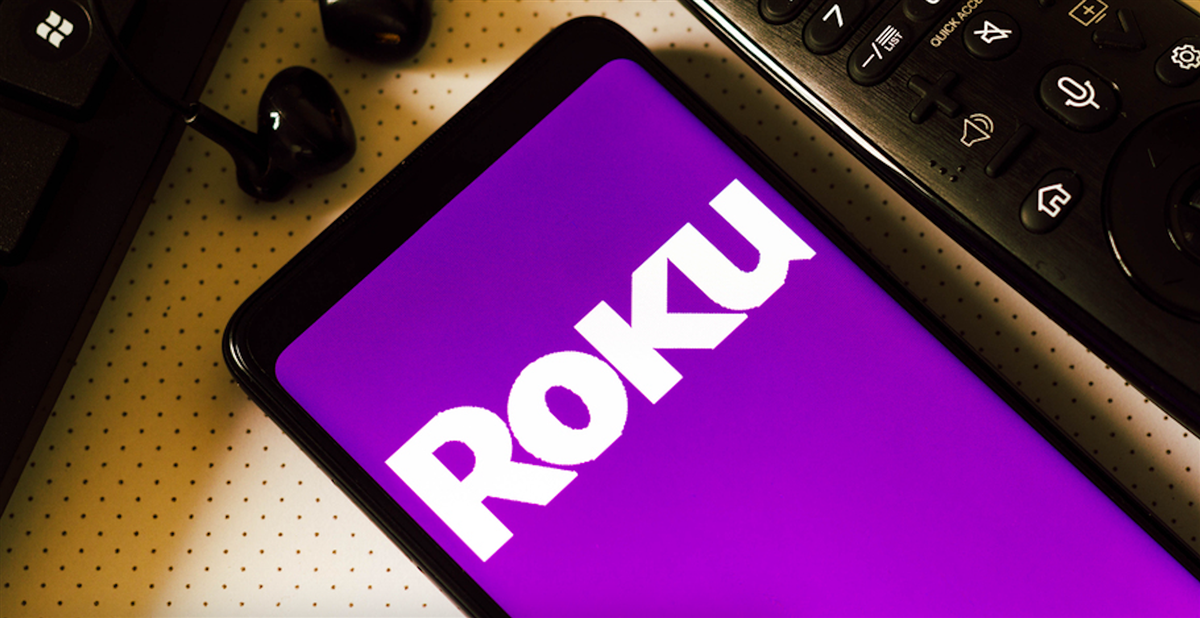
Despite the recent uncertainty and narrative dragging the S&P 500 sideways, such as the historically slow September and the aggressive pivot by the Federal Reserve (the Fed) by cutting up to 50 basis points (bps) instead of the expected 25bps, which might not be as bullish as the market had thought it would be. Investors can tell this is so by the market’s reaction.
Right after the announcement, the market made a brief all-time high before responsive sellers decided that price had gotten too far away from what they perceived as the market’s true value.
Knowing that volatility could be ahead, something that typically drives analysts away from making new recommendations, some thought enough of Roku Inc. (NASDAQ: ROKU) to reiterate a bullish view for the rest of the year.
Part of the consumer discretionary sector, with a healthy mix of technology aspects, Roku operates next to peers like Netflix Inc. (NASDAQ: NFLX), only on a smaller scale. This is good news for investors looking to squeeze another potential run out of the market, as Roku offers upside potential and unexpected stability during the new business cycle.
Roku Stock Emerges as a New Wall Street Favorite
After recent volatility in the technology and consumer sector, Roku stock traded down to 71% of its 52-week high price, creating a big enough gap that analysts couldn’t ignore. Among the many who kept their bullish targets on Roku stock, one bank stood out in its valuations for this name.
Those at J.P. Morgan Chase landed on a price target of up to $90 a share, which calls for a new 52-week high and a net upside of 16.3% from where it has traded down to today. Others like Needham & Company and Benchmark saw a bit more upside through their respective $100 and $105 price target for Roku stock.
Another gauge investors can consider when determining the market’s sentiment toward Roku stock is how the bears treat this company. Over the past month, Roku stock’s short interest declined by as much as 10.7%, showing signs of bearish capitulation in the face of the bullish factors the business brings in this new cycle.
But before investors dig deeper into those factors, they should know that institutions recognize this opportunity as well. Over the past 12 months, up to $1.3 billion in institutional capital made its way into Roku stock, recently led by Cathie Wood’s ARK Investment Management, which boosted its holdings by 1.3% this quarter.
This addition may seem like little on a percentage basis. Still, it brought the fund’s net investment up to $762.1 million today or 8.8% ownership in the company. Others, like the Bank of New York Mellon, thought the same by adding 5.2% to their stake.
Why Roku Stock Could Deliver on Its Promises: Key Factors to Watch
Investors must dig deeper into what delivers this expected upside in Roku stock. As market volatility is rising due to recent events, fundamentals matter more than ever. Starting with the business model, here’s why Roku might attract more capital.
Compared to Netflix’s $296.3 billion market capitalization, Roku’s $11.2 billion allows for much more growth as the business matures. But what business is this? It’s a subscription revenue business, with upgrades offered just like any other, making it attractive.
When markets are uncertain, they tend to gravitate toward stable and predictable options, and consumers will probably still allocate a monthly budget to entertainment platforms like Roku; after all, automatic payments are rarely noticed when they go out. Here are the numbers based on Roku’s latest quarterly earnings results.
A jump of 14% in the past 12 months sent Roku’s revenue up to $968 million, but that’s only the beginning. Streaming households jumped by 14% annually to reach 83.6 million, or nearly a quarter of the U.S. population. Streaming hours were also on the rise by 20% during the year, which is good for advertisement revenue for those free users.
Reaching these bigger economies of scale, Roku generated $317.9 million in free cash flow (operating cash flow minus capital expenditures), up from a net outflow of $169.3 million a year prior. Free cash flow is the lifeblood of any business that looks to compound its capital and valuations as it boosts further growth.
Banking on this future growth boosted by improving and scaling financials, markets are now willing to pay a premium valuation for Roku stock compared to the rest of the cable and television services industry. On a price-to-book (P/B) basis, Roku trades at 4.8x, while the industry’s average is just 1.8x.
Just like these analysts, markets must have an excellent reason to see and justify this much upside in Roku stock. Now, investors have a few trends to back these views as well.





